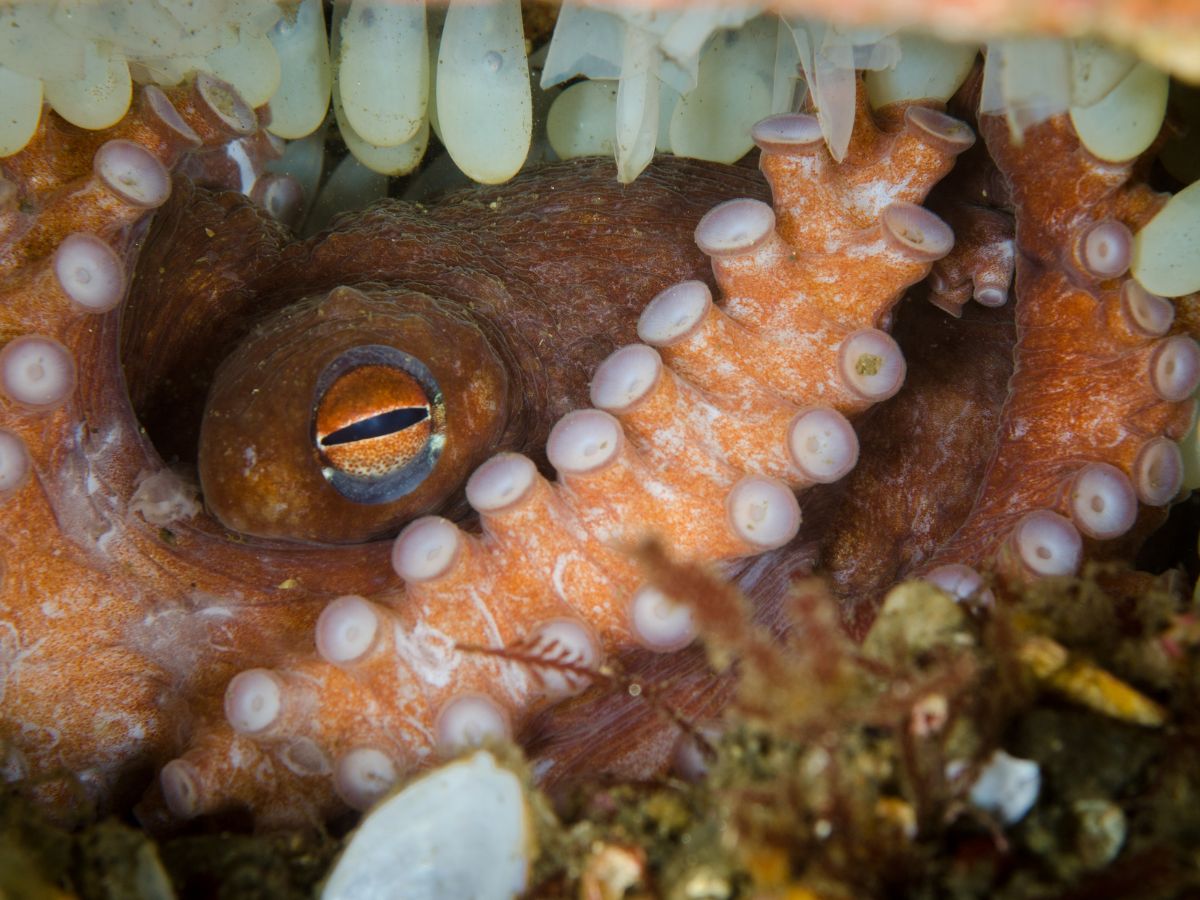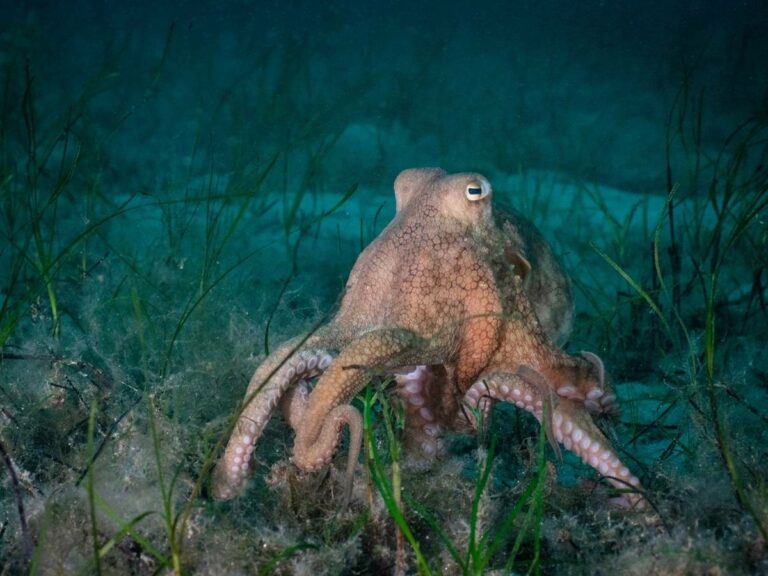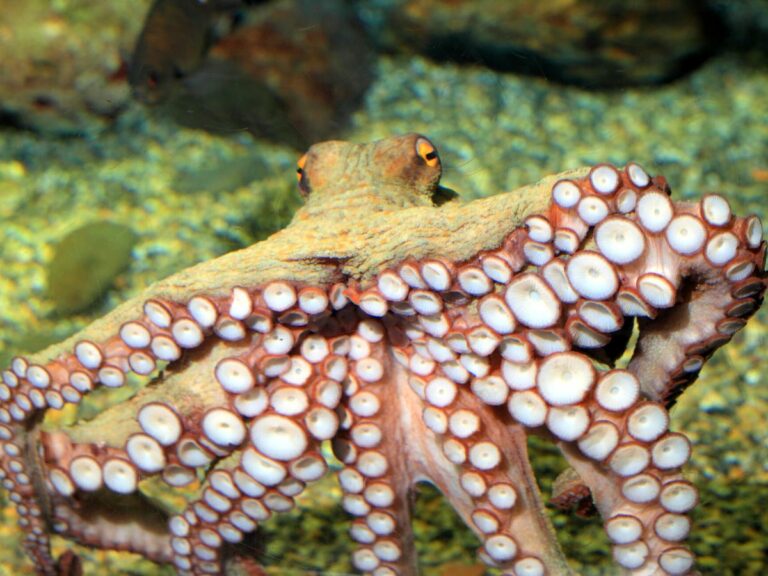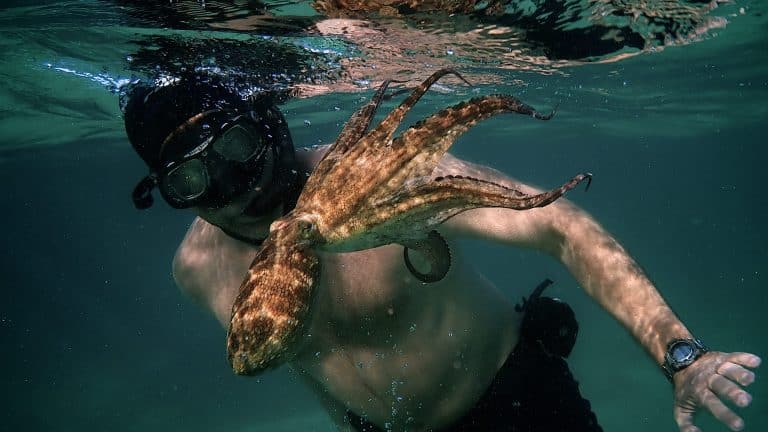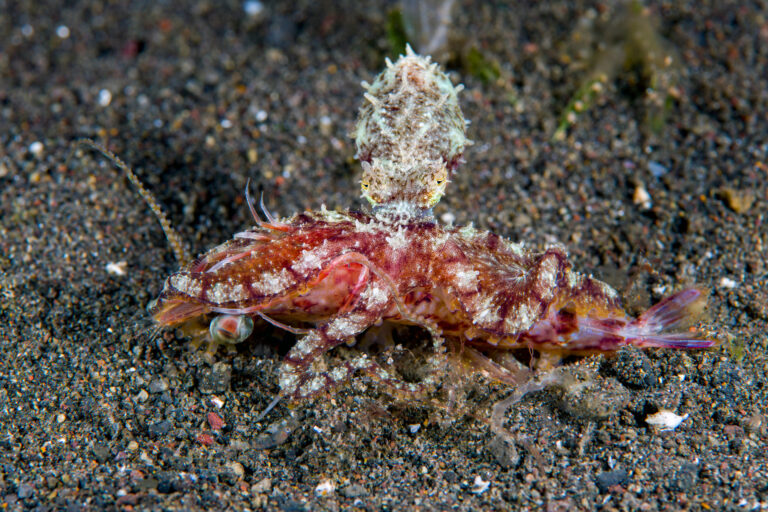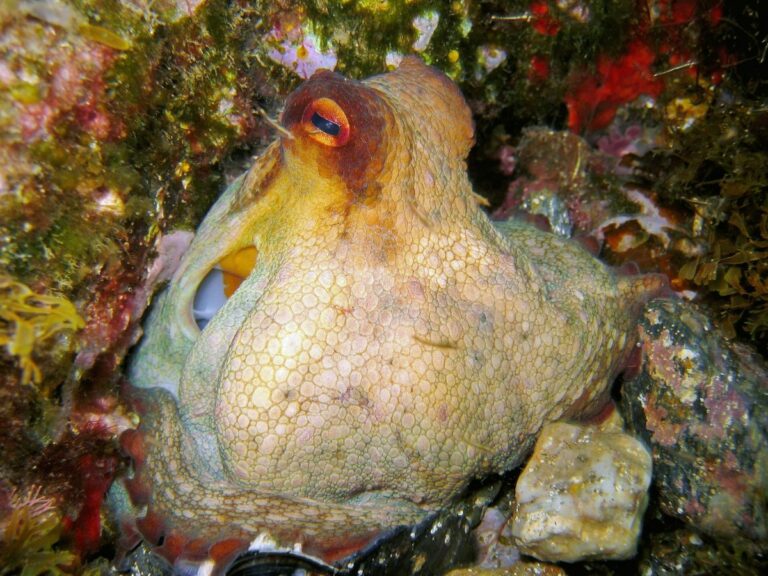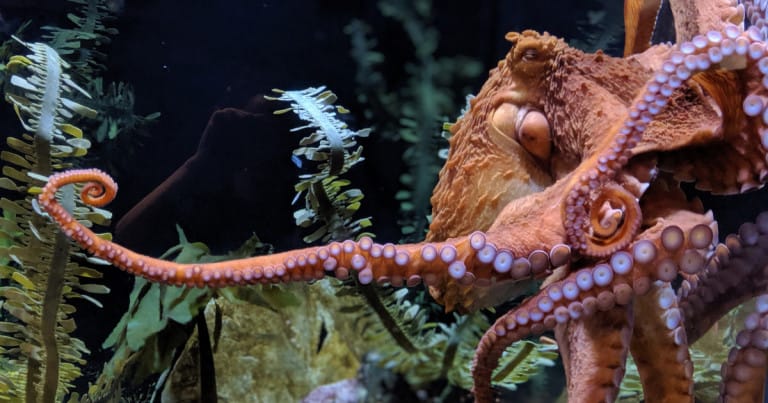Do Octopuses Die After Giving Birth?
The short answer is yes, octopuses die after giving birth. But stick around for the long answer—it’s fascinating! And, of course, there are always exceptions to the rule.
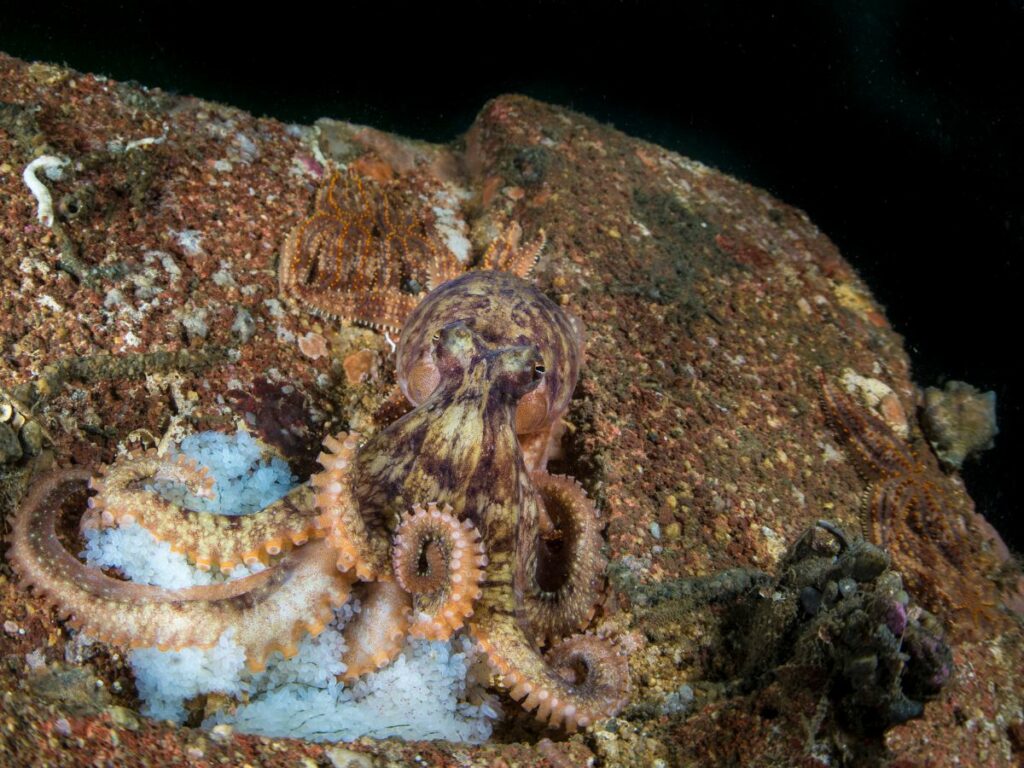
An octopus’s last stand
After a female octopus lays her eggs, she devotes the final leg of her life to making sure her baby octopuses stand a chance. This devotion can look different depending on the species.
In some cases, an octopus finds/builds a den and attaches her eggs to the walls or ceiling of the den, then spends a heck of a long time braiding them into chains that double as den décor.
Octo-moms may also lay their eggs on or under rocks or corals, then brood over them, protecting them from predators at all costs.
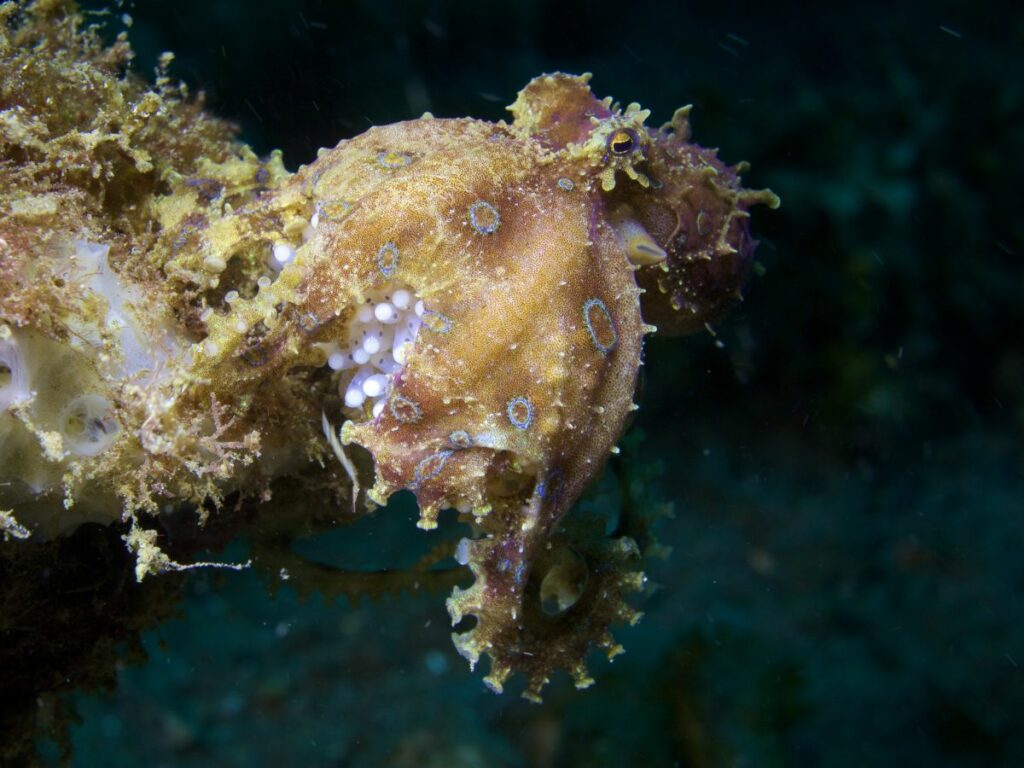
During the months or YEARS that follow egg-laying, an octo-mom’s sole purpose becomes protecting those babies as they develop. She won’t even leave the eggs to hunt for food—and, in fact, the part of the octopus’s brain that governs her urge to eat shuts that urge down.
As a result, the octo-mom slowly starves. She dies around the same time her babies hatch. (Are you sob-singing the Circle of Life in your head right now too?)
🐙 Octopus Fun Fact
To learn more about how an octopus’s brain functions during the brooding stage, scientists in 1977 tested female octopuses by removing an octopus’s optic gland (that’s the one responsible for shutting down an octo-mom’s urge to eat).
Apparently, without its optic gland, the octopus gave up on her eggs, resumed eating and kept on living for quite a while.
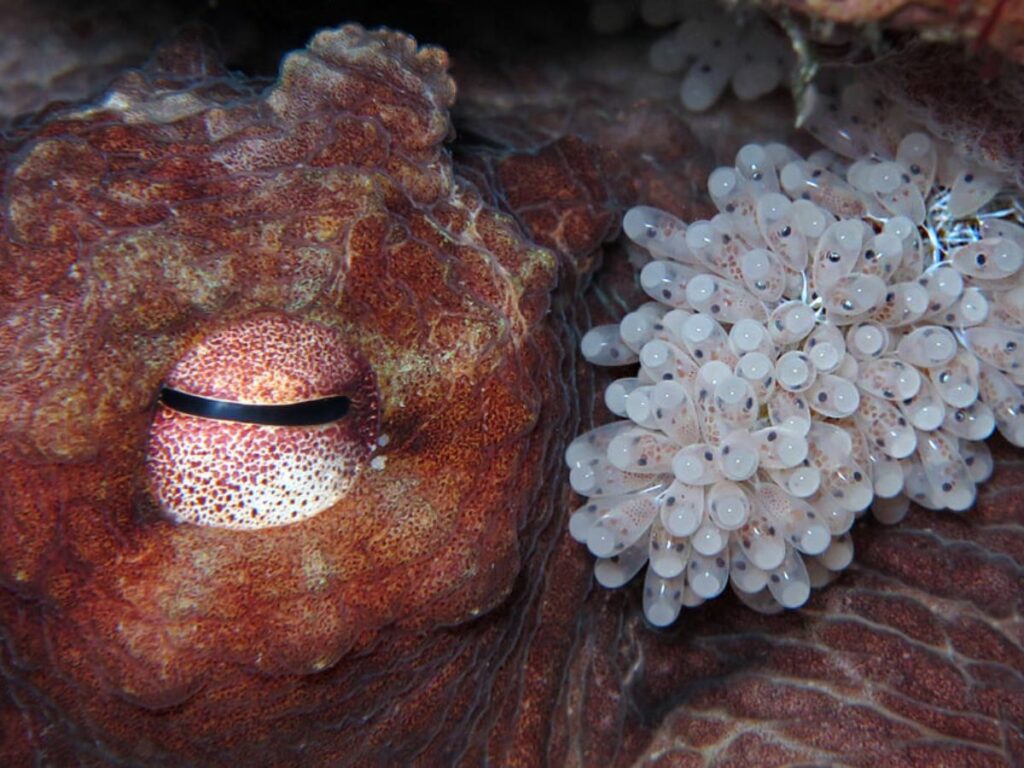
The science of senescence
The process of physical deterioration and behavioral changes that begin after an octopus lays her eggs and ultimately leads to her demise is called senescence. This process is controlled by the optic gland using a cocktail of multiple hormones and occurs in octo-dads, too, even though eggs do not receive paternal care!
It is still a bit of a mystery, but continued research is shedding more light on senescence.
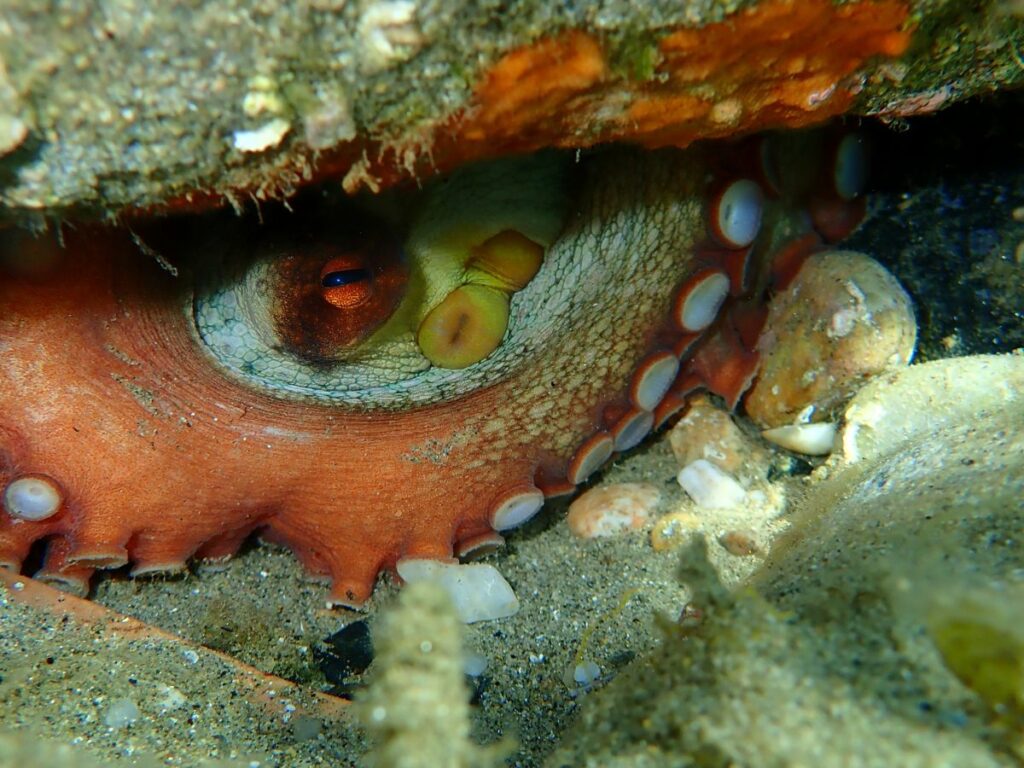
Along with the seemingly unnatural behavior of months- or years-long fasting after egg laying, octo-moms also sometimes exhibit disturbing self-mutilating behavior during this phase of their lives. Scientists also tie this behavior to the optic gland and the hormones it secretes during senescence.
🐙 Octopus Fun Fact
The exception to the rule alert!
Most but not all female octopuses follow the pattern of egg laying, senescence, and death that more or less coincide with their eggs hatching.
Lesser Pacific Striped Octopuses and Greater Pacific Striped Octopuses are two species that break the semelparity mold by laying multiple clutches of eggs during their lifetimes.
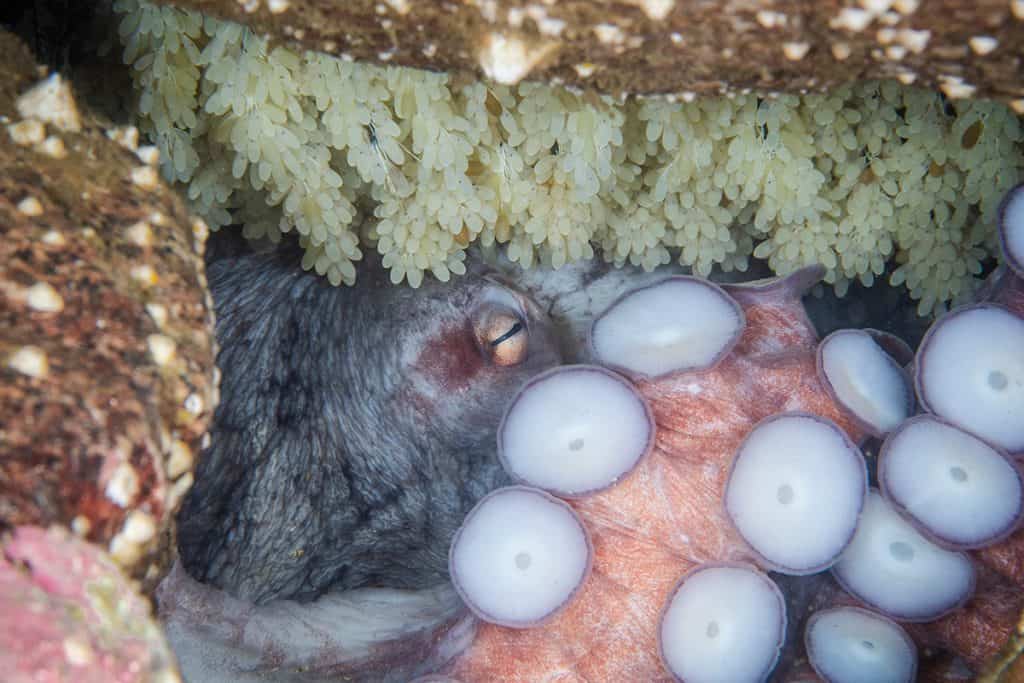
So, do octopuses die after giving birth?
Mostly… the answer is yes.
There are always those family weirdos who do things differently, but for the most part, octopuses die after they give birth. From our perspective as humans, that feels a little bit sad. But from the octopuses’ perspective, it’s not sad at all, c’est la vie.
🐙 Octopus Fun Fact
If you enjoyed this post, check out our blog that delves even further into how octopuses give birth!
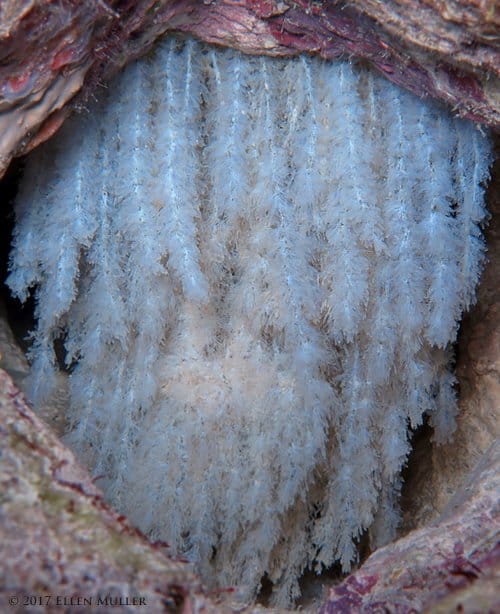
If you want to educate yourself some more about all sorts of different cephalopods, take a look at our encyclopedia. Or, what we call it, our Octopedia!
Connect with other octopus lovers via the OctoNation Facebook group, OctopusFanClub.com! Make sure to follow us on Facebook and Instagram to keep up to date with the conservation, education, and ongoing research of cephalopods.
More FAQs to check out!
- What Are 5 Things An Octopus Eats?
- How Smart Are Octopuses?
- When Do Senescent Octopuses Feel Pain?
- Do Octopus Have Bones?
- Does An Octopus Have Arms Or Tentacles?
References:
- Senescence in general: https://www.tandfonline.com/doi/abs/10.1207/S15327604JAWS0504_02
- Hormones contributing to octopus behavior: https://pubmed.ncbi.nlm.nih.gov/30104305/

Bethanie Hestermann is a freelance writer and author of animal-science books, including Zoology for Kids and Marine Science for Kids. She is a contributing writer for OctoNation! You can find all her books at www.zoologyforkids.com/books.
